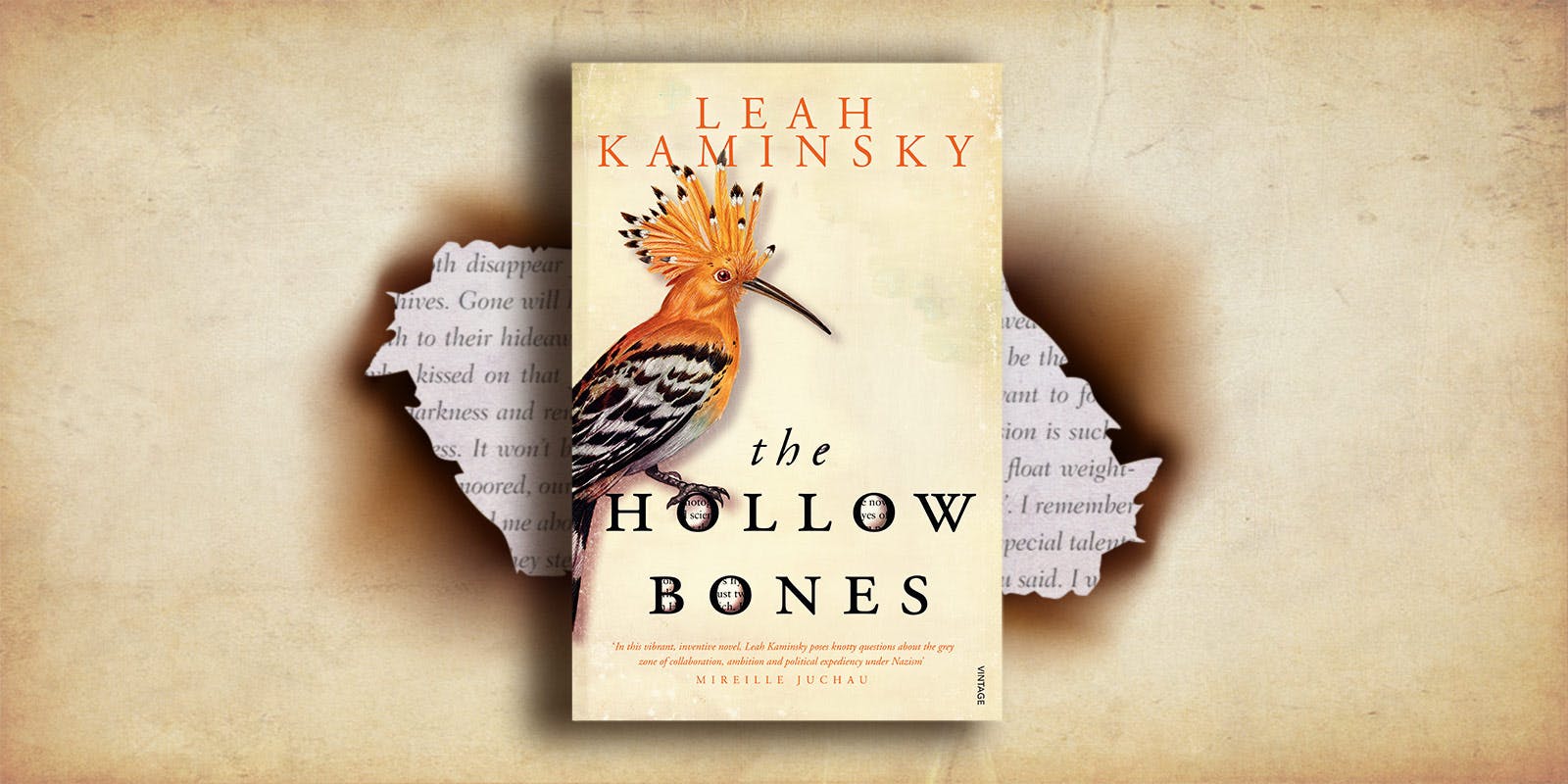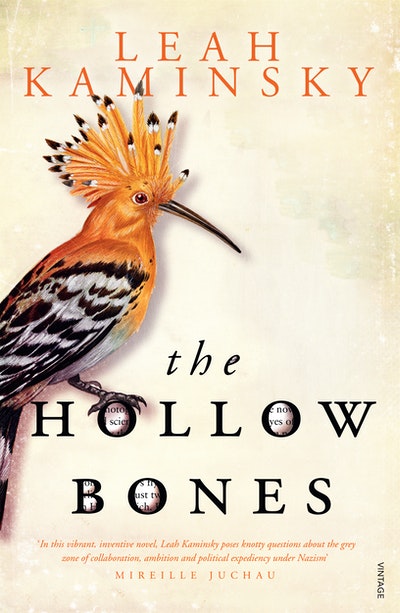Leah Kaminsky reflects on researching German scientists and World Ice Theory for her novel, The Hollow Bones.
While I was writing my debut novel, The Waiting Room, I spent a lot of time researching the role doctors and scientists played in WWII. Many of them held very high ranks in the Reich and it troubled me deeply me that so many German scientists had cast aside their morality, in order to advance their careers. When science and politics become bedfellows, a slippery slope is created, leading to the blurring of ethical boundaries. This is the territory The Hollow Bones inhabits and attempts to examine.
During my reading, I came across a strange pseudoscientific theory called Welteislehre, or World Ice Theory, which at the height of its popularity became the ‘scientific’ platform for the Third Reich, embraced at the very highest level, by Himmler and Hitler. Einstein’s Theory of Relativity, regarded as ‘Jewish science’ had been mocked and cast aside. World Ice Theory was the crazy invention of an engineer, Hanss Horbinger, who at the turn of the century dreamed the world was made of ice – the ice crystal replacing the atom as the building block of the universe. When challenged on the science behind his vision, he retorted: “Calculation can only lead you astray’. The theory was embraced far and wide and became very popular in 1930s Germany. I was intrigued. Every time I read about World Ice Theory, the name of a young German zoologist and scientist, Ernst Schäfer appeared and soon the strange story of this nature-loving young boy turned SS officer captured my imagination. I felt compelled to find out more about him.
A crack hunter and keen explorer, Schäfer had been on two previous expeditions to Tibet in conjunction with the Academy of Natural Sciences in Philadelphia, came to the attention of Himmler, who ordered him to return to Germany. He placed Schäfer at the head of a team of German scientists - which included a racial anthropologist, an entomologist, a geophysicist and a cameraman – who, in early 1938, were to travel to the foothills of Tibet. Outwardly, they were to carry out scientific experiments and curry favour with the Tibetan leadership, but their true mission was to explore the origins of the Aryan race. The Third Reich, with Himmler at the helm of a secretive brotherhood called the Ahnenerbe, or Ancestral Heritage Department, believed that the German race sprang from a superior Nordic Aryan warrior people, who lived in the icy depths of the Himalayas thousands of years ago. This civilisation was supposedly brought to the surface after an ancient, icy moon plummeted to earth, releasing sonnenmenschen, or superior beings who bred with ancient Tibetans. Himmler and his whacky cronies believed that the true origins of the Aryan race would be found amongst contemporary inhabitants of Tibet. They set out to prove that the region of Tibet belonged to the Reich, giving the German Volk Lebensraum, land to take for themselves.
As the daughter of a Holocaust survivor, the history of WWII haunts me. I am drawn to read about it, yet simultaneously repulsed at the potential for hatred that rests within otherwise ordinary people. Hannah Arendt referred to this as the ‘banality of evil’. I wanted to see what it was that turned Ernst Schäfer from a nature-loving child to a man willing to sacrifice all he held dear in order to advance his career. What were the small acts of sullied morality that led to his decline into darkness? To what lengths was he prepared to go in order to forward his career? I spent four years researching The Hollow Bones, digging into dusty archives, translating field diaries and documents written in German, scouring thousands of photographs and accessing rare film footage. The book is based on a true story. The only person I could find almost nothing about was Schäfer’s first wife, Herta, which allowed me as a novelist to cast her as my protagonist’s moral conscience. I wondered how a young woman, growing up in a rapidly-changing Germany, might feel when her childhood sweetheart came back into her life as an ambitious scientist and SS officer.
The novel seeks to give voice to the voiceless – those who Schäfer categorised and destroyed in the name of science, including one character who speaks on behalf of all sentient beings, a small yet plaintive cry from the wild.













